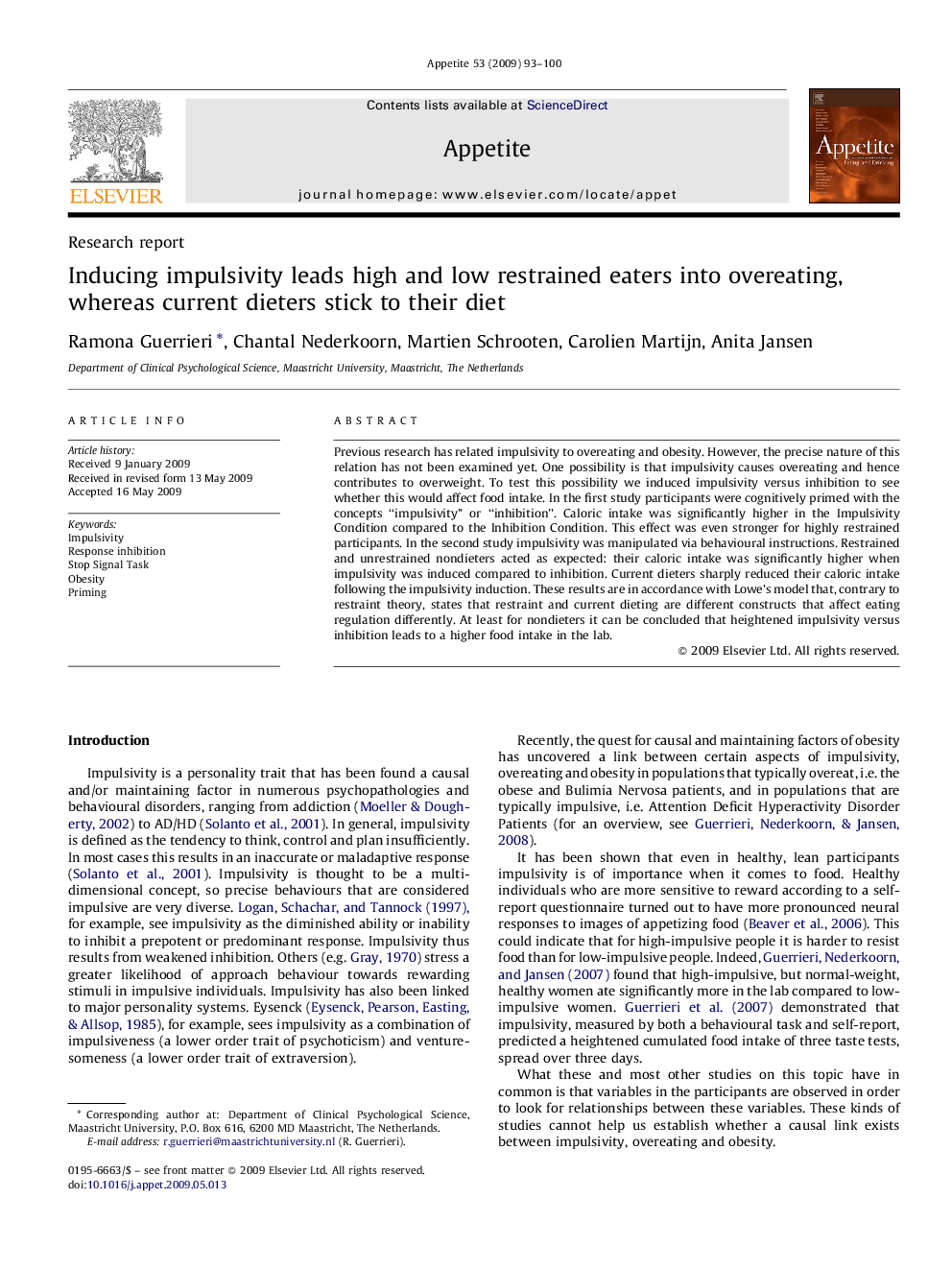| کد مقاله | کد نشریه | سال انتشار | مقاله انگلیسی | نسخه تمام متن |
|---|---|---|---|---|
| 941158 | 924904 | 2009 | 8 صفحه PDF | دانلود رایگان |

Previous research has related impulsivity to overeating and obesity. However, the precise nature of this relation has not been examined yet. One possibility is that impulsivity causes overeating and hence contributes to overweight. To test this possibility we induced impulsivity versus inhibition to see whether this would affect food intake. In the first study participants were cognitively primed with the concepts “impulsivity” or “inhibition”. Caloric intake was significantly higher in the Impulsivity Condition compared to the Inhibition Condition. This effect was even stronger for highly restrained participants. In the second study impulsivity was manipulated via behavioural instructions. Restrained and unrestrained nondieters acted as expected: their caloric intake was significantly higher when impulsivity was induced compared to inhibition. Current dieters sharply reduced their caloric intake following the impulsivity induction. These results are in accordance with Lowe's model that, contrary to restraint theory, states that restraint and current dieting are different constructs that affect eating regulation differently. At least for nondieters it can be concluded that heightened impulsivity versus inhibition leads to a higher food intake in the lab.
Journal: Appetite - Volume 53, Issue 1, August 2009, Pages 93–100